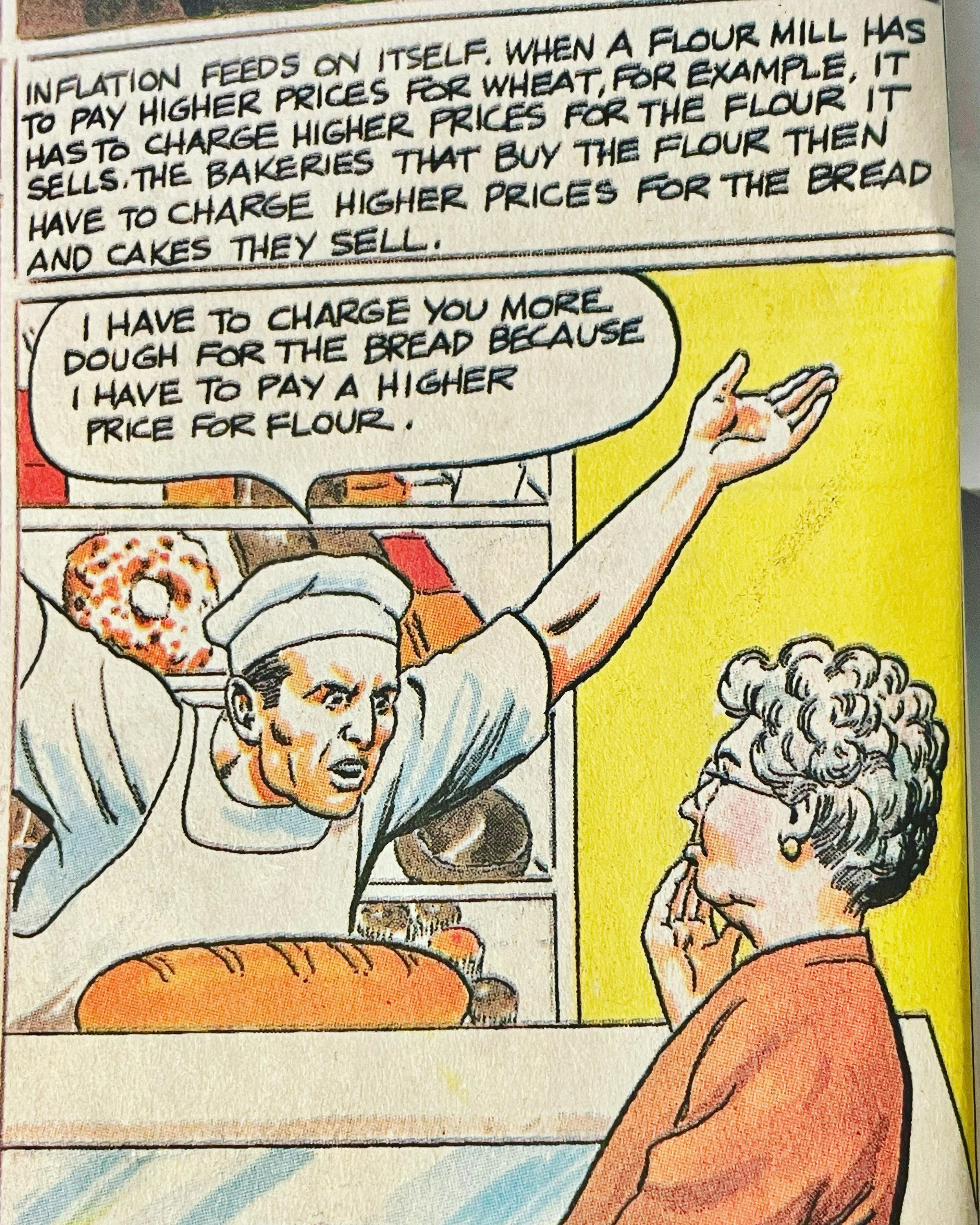President Biden can’t blame inflation on price-fixing
The New York Post, January 25, 2022
The buck may have stopped at Harry Truman’s desk, but today’s eroding dollar is having trouble finding a berth in Joe Biden’s Oval Office.
For much of last year, the president insisted that inflation was temporary. (To be fair, the Federal Reserve claimed something similar.) But with prices likely to continue rising at a brisk pace for some time — in December, inflation reached levels not seen for 40 years — Team Biden is changing its tune, and, as administrations in a political mess tend to do, it’s looking for someone to blame.
There are plenty of explanations for the surge in prices, from the Fed’s easy money to pandemic-related supply-chain effects. And then there’s March’s $1.9 trillion American Rescue Plan, which injected more money into the economy than it could cope with — not that the president will be talking a lot about that.
Instead, the White House and its proxies have singled out other less plausible but politically more attractive suspects, such as Big Oil, Big Grocery and, uh, Big Meat. After all, throwing dirt at large corporations might win back voters unhappy that their dollars are buying so much less.
In November, the White House asked the Federal Trade Commission’s antitrust enforcers to investigate whether oil companies had been playing around with the price at the gas pump. The agency then demanded various wholesalers, grocery chains and consumer-goods suppliers provide details of supply disruptions, with an aim toward examining (although it was put somewhat more politely) how they might have been exploited. Sen. Elizabeth Warren took that up a notch, tweeting that Big Grocery had been raking in profits while pushing up prices, adding that “we need to strengthen our antitrust laws to break up giant corporations and lower prices.”
Meanwhile, the FTC’s announcement of its examination into the goings-on at Big Grocery also referred to other disruptions, including in the meat supply. That was no coincidence: Big Meat has been a focus of attention for a while. (The largest four beef-packers control some 82% of their market, and the top four hog- and poultry-processing firms dominate their sectors, too.)
Now the Agriculture Department is investigating. In the White House’s view, “meat-processors are generating record profits during the pandemic at the expense of consumers, farmers and ranchers.”
That’s the sort of rhetoric in which an embattled administration might be expected to indulge, and like a great deal of what the White House is now saying (and doing) on this topic, it is really targeted at the midterms rather than inflation itself.
There’s little to back up those suggestions of dodgy pricing by Big Oil. If the administration were truly concerned about the rising cost of energy other than at politically inconvenient moments, it would encourage rather than discourage domestic oil and gas production. As matters stand, with Team Biden’s emphasis on fighting climate change, we are probably only at the beginning of an era of “greenflation.” And that will be coming for more than the cost of driving a car or heating (or cooling) a home.
For its part, the grocery sector is highly competitive, something only intensified by online challengers and by other stores — think Walgreens — that include groceries on their shelves. The notion that greedy Big Grocery will suddenly have seized the inflationary opportunity by switching to cartel-like behavior is hard to believe.
And even those blood-stained villains over at Big Meat (an industry that has, incidentally, been consolidated — or consolidating — for decades) have had to contend with the effects of drought as well as pandemic-related disruptions, labor shortages, rising input costs and unexpectedly strong demand, all factors that would generally bring higher prices in their wake. There is good reason to think that market forces will go a long way toward remedying the problem if they are given the chance, in this as in most other sectors.
Unfortunately, free markets are not in favor in Washington these days, and, if there’s one thing we ought to have learned by now, it is that big government is not the consumer’s friend.
It’s unpleasantly symbolic that with progressive Lina Khan at the helm, the FTC seems set to move some way away from the classic price-centered definition of consumer harm that has been central to antitrust action for years. Attempts to “improve” free markets with an idealized competitive model that only a central planner could love are likely to mean even higher prices to come.
